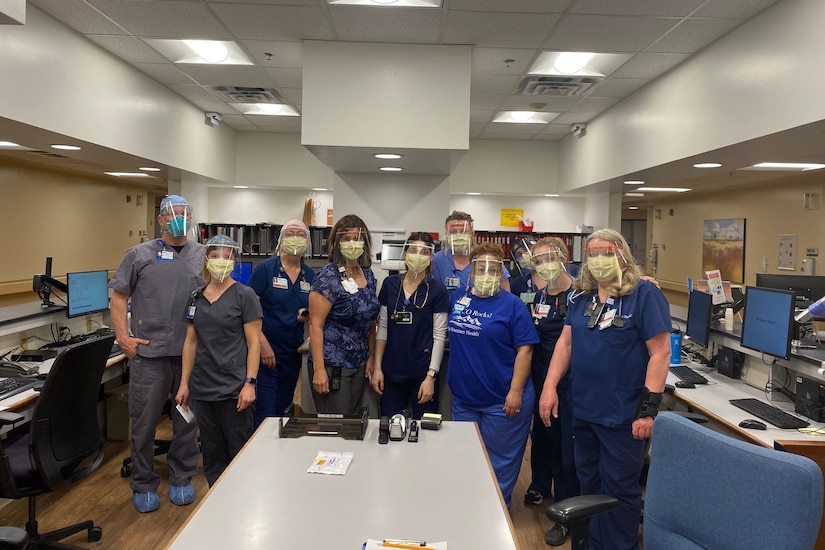May 15, 2020 | BY Rebecca Nappi
The low hum buzzing in the background of a conference call
with soldiers from the 20th Chemical, Biological, Radiological, Nuclear and
Explosives Command isn't coming from your typical household appliance. It's the
sound of personal protective equipment being made, for health care workers and
emergency responders in need.
The soldiers joined other volunteers in the Aberdeen Proving
Ground, Maryland, area to volunteer their free time and personal 3D printing
capabilities to print and create face shields for donation to hospitals and
health care workers combating COVID-19 across the nation.
Army Maj. John James Arteche, a 20th CBRNE Command
operations officer, is one of the 10 soldiers from the command — along with
other Aberdeen Proving Ground personnel, retired Defense Department employees
and local law enforcement officers — volunteering their free time and personal
3D printers to create personal protective equipment for providers working the
front lines of COVID-19 care.
"It just seemed like such a simple piece of plastic to
help protect medical personnel," Arteche said. "But this simple piece
of plastic can potentially save a life or mitigate risk."
The group came together through an explosive ordnance
disposal Facebook group, where Army Staff Sgt. James Ahn, an Army Logistics
University EOD small group leader, saw a critical need and an interested and
capable group of people who could help him.
"Because our group is filled with first responders and
people who support first responders at a national level, it was an easy
transition of our current skill sets to be able to work such a strong
grassroots effort," Ahn said.
While Arteche is working in a subset of the larger group,
Ahn has gathered volunteers from various disciplines across the country to work
in an unofficial capacity to create this personal protective equipment.
The concept for the group is simple: 3D print a National
Institutes of Health accepted design for a visor headband and add a
transparency sheet to create an improvised face shield. Within an hour, two unassuming
pieces of plastic are combined to create a potentially lifesaving piece of
personal protective equipment.
Once volunteers in the Aberdeen Proving Ground area have
completed the face shields, they are delivered to the local coordinator, Gary
Ledder. An electronic technician with the Army Combat Capabilities Development
Command, Ledder coordinates the operational movements such as shipping,
placement and other logistics.
"We do this one, because we can, and two, because we
should," Ledder said. "A lot
of these volunteers were trying to help, and it helps a lot of people mentally
to help others. This gives me a purpose right now."
The main goal for the 50 volunteers from around the country
is to provide PPE to those who need it at zero cost.
In total, the volunteers expect to create more than 13,500
face shields that will be sent to 28 states and one U.S. territory. Over 160
facilities nationwide have benefited from these volunteer efforts, including
urgent care centers, hospitals, assisted living facilities and COVID-19
screening stations.
"It just feels like the right thing to do,"
Arteche said. "I have the time and capability so why wouldn't I?"
The volunteers will continue to send out face shields, and
they're looking for any other centers and locations that need them.
"It's just first responders helping first
responders," Ledder said. "We've fought on the battlefield, but now
our new front lines are the medics."
(Rebecca Nappi is assigned to the 20th CBRNE Command.)









No comments:
Post a Comment